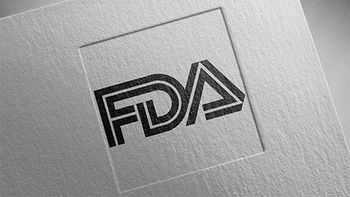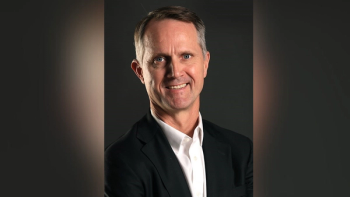- Lack of Awareness Among Healthcare Providers. Despite being the first line of defense, most HCPs receive little to no training on identifying counterfeit or substandard medicines, which puts patient safety at risk.
- Online Pharmacies Pose Significant Dangers. While more consumers and even HCPs are turning to online pharmacies for convenience or cost reasons, about 95% of these sites are illegal or unsafe, contributing to the spread of counterfeit medicines.
- Education and Advocacy Are Critical. Industry efforts such as the BESAFE project and global pharmacy curriculum initiatives are essential to increase awareness, improve training, and ensure safer medication practices across healthcare systems.
A global security leader I know often talks about the importance of raising awareness, not alarm, regarding the threat and risk of counterfeit and illicit medicines. The last thing you would want, he says, is to have someone fear taking their medication because they read, for example, a commonly cited statistic such as, “World police agency Interpol says more than one million people die each year from counterfeit drugs…”1 That is scary.
Certainly, we don’t want to stoke fear, but the awareness aspect is critical, even though the risk may be low, generally speaking. It’s important as a consumer and vital as a healthcare provider (HCP) to know the basic telltale signs of a fake, along with the simple precautions people can take to ensure they are getting genuine, safe, and effective medicine. It can truly mean life or death.
But do they know? Are they aware?
Flipping the security leader’s point around, what we should be raising the alarm about, as an industry, is the serious lack of awareness on this issue, especially among HCPs, and specifically when it comes to purchasing drugs online. HCPs—doctors, nurses, and pharmacists—are a critical first line of defense in our fight against counterfeit medicines. In numerous counterfeit investigations that I’ve had experience with, an HCP has been the one who recognized that something was “off” with a product and reported it through quality complaint channels, which led to appropriate actions being taken.
HCPs are also in a position to advise patients of appropriate precautions to take when acquiring their medicines.
I first got the sense that awareness among HCPs was not what it should be when, a few years back, I met the head of professional education for all nurses of a major European healthcare system. She told me that nurses there received no formal education or training on the topic of counterfeit and illicit drugs. Then, recently, I read a report from the Johns Hopkins Bloomberg School of Public Health2 that highlighted the knowledge gap that exists among HCPs in the US regarding this issue. The data point that caught my attention was that “Only 2% of HCPs are trained to identify substandard and falsified (SF) [i.e., counterfeit] drugs and counsel patients about safe prescription acquisition procedures.” The report also cited a survey that indicated that “more than 80% of US HCPs do not consider SF drugs a serious concern.”
Raising the alarm even higher is the fact that more consumers are buying medicines online, a market shift that occurred during COVID-19 and has continued to persist and grow.3 We know this practice can be very risky due to the proliferation of counterfeit and illicit drugs online and the easy access that the internet affords. Since 2017, the Alliance for Safe Online Pharmacies has been reporting that roughly 95% of online pharmacies are illegal or unsafe.4
Yet, there is a growing perception that buying medicines online is safe. It’s no longer just patients turning to the internet in desperation. Increasingly, I’ve read reports and heard anecdotally that HCPs themselves are recommending online pharmacies, especially Canadian ones, to help patients sidestep high drug costs or supply chain disruptions. While well-intentioned, this normalization of online drug buying, especially outside of regulated channels, poses serious dangers for patient safety and public health.
To the average person, many of these sites appear to be legitimate—complete with sleek design, fake seals of approval, and customer reviews. It seems we have some serious work to do to ensure that people understand how to purchase medicines online from safe and reputable sources—the Alliance for Safe Online Pharmacies offers resources to assist with that under their “Find Safe Online Pharmacies” section.5
The good news is that major initiatives and alliances, such as the BESAFE project at Johns Hopkins, which is sponsored by Pfizer; the FIP & WHO Pharmacy Curriculum Guide on Substandard and Falsified Medicines; and the Partnership for Safe Medicines, to name a few, are focused on raising awareness; improving education and training among HCPs; and promoting advocacy on this important issue. As an industry, we need more support and funding for initiatives like these to help safeguard patients and consumers and preserve public trust in our healthcare system.
About the Author
Sean O’Hearen is Founder and Principal Consultant at 1st Line Partners.
References
1. Southwick, N. Counterfeit Drugs Kill 1 Mn People Annually: Interpol. Insight Crime. October 24, 2013. https://insightcrime.org/news/brief/counterfeit-drugs-kill-1-million-annually-interpol/
2. 2024 Symposium on Public Health Strategies to Combat Substandard and Falsified Drugs. Johns Hopkins Bloomberg School of Public Health. 2024. https://fakemedicinenomore.org/2024-besafe-symposium/
3. ASOP Global Releases Survey Noting Consumers Are Increasingly Purchasing Medications Through Online Pharmacies. National Association of Boards of Pharmacy. February 5, 2024. https://nabp.pharmacy/news/blog/regulatory_news/asop-survey-purchasing-online-pharmacies/
4. Alliance for Safe Online Pharmacies homepage. Alliance for Safe Online Pharmacies. https://buysaferx.pharmacy/
5. Alliance for Safe Online Pharmacies’ “Find Safe Online Pharmacies” tab. Alliance for Safe Online Pharmacies https://buysaferx.pharmacy/find-safe-online-pharmacies/





